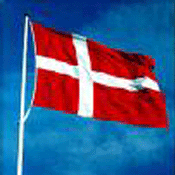The Netherlands’ Pensioen Federatie has urged the European Union (EU) to set up the European Single Access Point (ESAP) “swiftly” and for the data portal to provide access to sustainability data.
In a position paper, the federation noted that Dutch pension funds were very active in sustainable investment, with the majority having signed a sectorial agreement to implement sustainability due diligence to mitigate human rights abuses and environmentally adverse impacts.
Furthermore, many pension funds have implemented carbon reduction plans in line with the Paris Climate Agreement.
Pensioen Federatie stressed the need for reliable sustainability data about companies so pension funds can implement these policies and be able to meet recently introduced reporting requirements for financial market participants.
“With the introduction of the Sustainable Finance Disclosure Regulation (SFDR) and taxonomy regulation, more pension funds will have to report in detail on the principle adverse impacts (PAI) of their investment portfolio,” it stated.
“A majority of Dutch pension funds have classified their pension scheme as promoting ESG characteristics. The EU Taxonomy brings much needed clarity in terms of definitions, but also requires comprehensive data on taxonomy alignment by investee companies.”
Pensioen Federatie warned that sustainability data from investee companies, which is required for SFDR and taxonomy reporting, was patchy, although this should change with the forthcoming Corporate Sustainability Reporting Directive (CSRD).
However, the federation said that CSRD data will be lacking in the first years of SFDR and taxonomy reporting and, therefore, the ESAP should be ready to collect and distribute CSRD data as soon as possible.
It called for ESG data to be prioritised in the first phase of implementation and suggested that the ESAP should at first narrow its scope to non-financial information on ESG aspects of companies, noting that ESAP does not have much potential in increasing the accessibility of financial data, which is already widely available.
Furthermore, it argued that most pension funds will likely continue to source their data through data aggregators, which will become ESAP power users, and while it was “justifiable” to charge ESAP power users a fee, these fees should be moderate to allow affordable access to ESAP data.
Pensioen Federatie also expressed concern that the proposed budget for the ESAP was too low and could mean its functionalities will be limited and user needs are not met.
“We stress the need for swift political agreement on ESAP,” the position paper continued.
“An ambitious timeline for implementation should be set, to have a fully functioning first phase system ready at the earliest possible occasion, with due concern for quality. There should be no extension of timelines beyond those in the European Commission proposal.”
Latest News
-
Looking back: A year in review
-
Looking back: The most read stories of 2025
-
SNS Reaal delays transition to new pension system due to admin capacity
-
France’s ERAFP awards three SRI mandates for EM credit bonds
-
News in brief: 23 December
-
Cross-border IORP activity remains stable in EEA, EIOPA report finds
Podcast: Stepping up to the challenge

In the latest European Pensions podcast, Natalie Tuck talks to PensionsEurope chair, Jerry Moriarty, about his new role and the European pension policy agenda
Podcast: The benefits of private equity in pension fund portfolios

The outbreak of the Covid-19 pandemic, in which stock markets have seen increased volatility, combined with global low interest rates has led to alternative asset classes rising in popularity. Private equity is one of the top runners in this category, and for good reason.
In this podcast, Munich Private Equity Partners Managing Director, Christopher Bär, chats to European Pensions Editor, Natalie Tuck, about the benefits private equity investments can bring to pension fund portfolios and the best approach to take.
In this podcast, Munich Private Equity Partners Managing Director, Christopher Bär, chats to European Pensions Editor, Natalie Tuck, about the benefits private equity investments can bring to pension fund portfolios and the best approach to take.
Mitigating risk
BNP Paribas Asset Management’s head of pension solutions, Julien Halfon, discusses equity hedging with Laura Blows
© 2019 Perspective Publishing Privacy & Cookies







Recent Stories